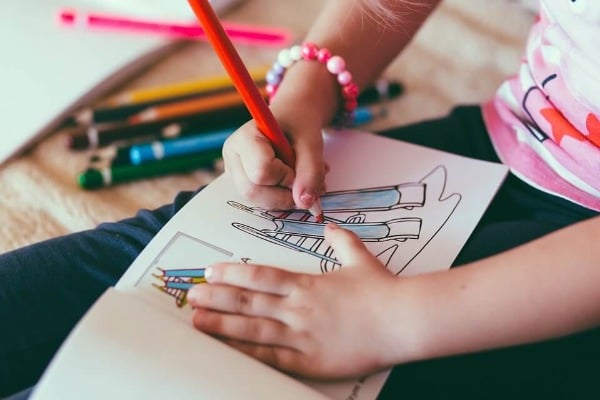Instead of "Good Job!" Try These Positive Affirmations

Good job, Jackson!
Fantastic work, Sophia!
Well done, Mateo!
These well-intentioned forms of traditional praise are ubiquitous in early childhood settings, but what really do these positive expressions communicate to young learners?
Teachers, parents, and caregivers typically say words such as “good job” to celebrate children’s work and instill in them a sense of self-confidence. However, overusing phrases such as these may actually increase children’s need for external validation, creating an approver versus approval-seeker relationship. Early learners learn to value (or not value) their work based solely upon someone else’s judgement of it. Additionally, generic praise doesn’t help children become cognizant of exactly why their work is good.
This is not to say that we shouldn’t ever provide affirmations to kids. Early learners simply need to hear these things sometimes. But if we want to create self-motivated, independent thinkers who understand themselves as learners, we need to teach them how to evaluate their own work. We can accomplish this by...
- Listening more and talking less
- Asking reflective questions
- Providing feedback versus judgement
- Tapping into their feelings
- Celebrating effort over ability
- Praising progress
Here’s a list of 20 alternatives to “good job” that will encourage children to take ownership of the learning process:
- You did it! I know this took lots of practice.
- I can tell you worked hard on this because…
- You have shown so much growth! Remember, when you couldn’t ___, but now you can____.
- I notice that you added details to your work such as...
- What about this work makes you most proud? Why?
- How does this work make you feel? Please explain!
- Tell me more about this!
- Which part do you like the best? Why?
- You didn’t think you could do this at first, but now look!
- Do you think this is better than your last one? How so?
- Is there anything you can do to make this even better?
- I can tell you’re excited! I’m excited for you because…
- What was the hardest/easiest part about this?
- What did you learn from doing this?
- Now that you know how to do this, what should we try next?
- Do you feel like you’re getting better at this? How do you know?
- I knew you could do it, and you’ve just proved it to yourself!
- I can tell you feel proud! Should we share it with your classmates?
- You kept trying, even though this was hard for you. That shows grit!
- Phew! You finished! I knew you could.
So, give a few of these a try! This approach is sure to produce some great dialogue and may motivate and empower your little ones even more.
Also, be sure to check out Becker’s Instill SEL Gold Package which provides a plethora of tools for promoting self-awareness, responsible decision-making, self-management, social awareness, and relationship skills.
-----
Dr. Bevin Reinen is an educator, blogger, writer, speaker, and consultant who has held numerous leadership positions throughout her 15 years in education. Bevin holds a Bachelor of Arts in English, a Master of Science in Early Childhood Education, and a Doctorate of Education in K-12 Leadership. Bevin was named the 2011 Hampton Roads Magazine Top Teacher Overall and the 2015 Virginia Region II Teacher of the Year. Bevin is National Board Certified as an Early Childhood Generalist and was identified as an emerging leader by both ASCD and NAEYC. Her work appears in numerous print and online publications and she is the proud founder of TeachTrainLove.com.
The opinions, representations, and statements made within this guest article are those of the author and not of Becker’s School Supplies as a whole. Any copyright remains with the author and any liability with regard to infringement of intellectual property rights remains with them. The company accepts no liability for any errors, omissions or representations.
